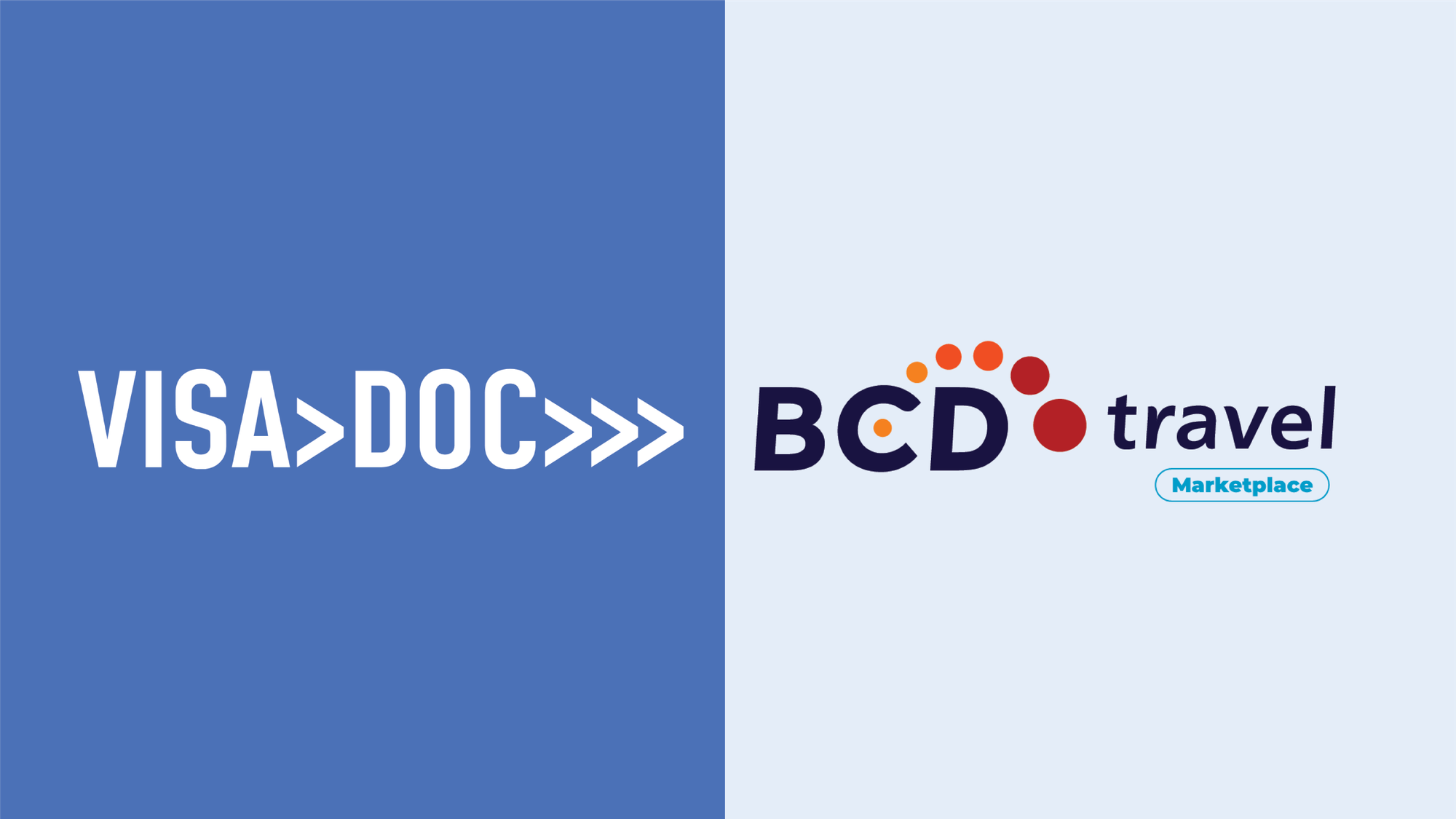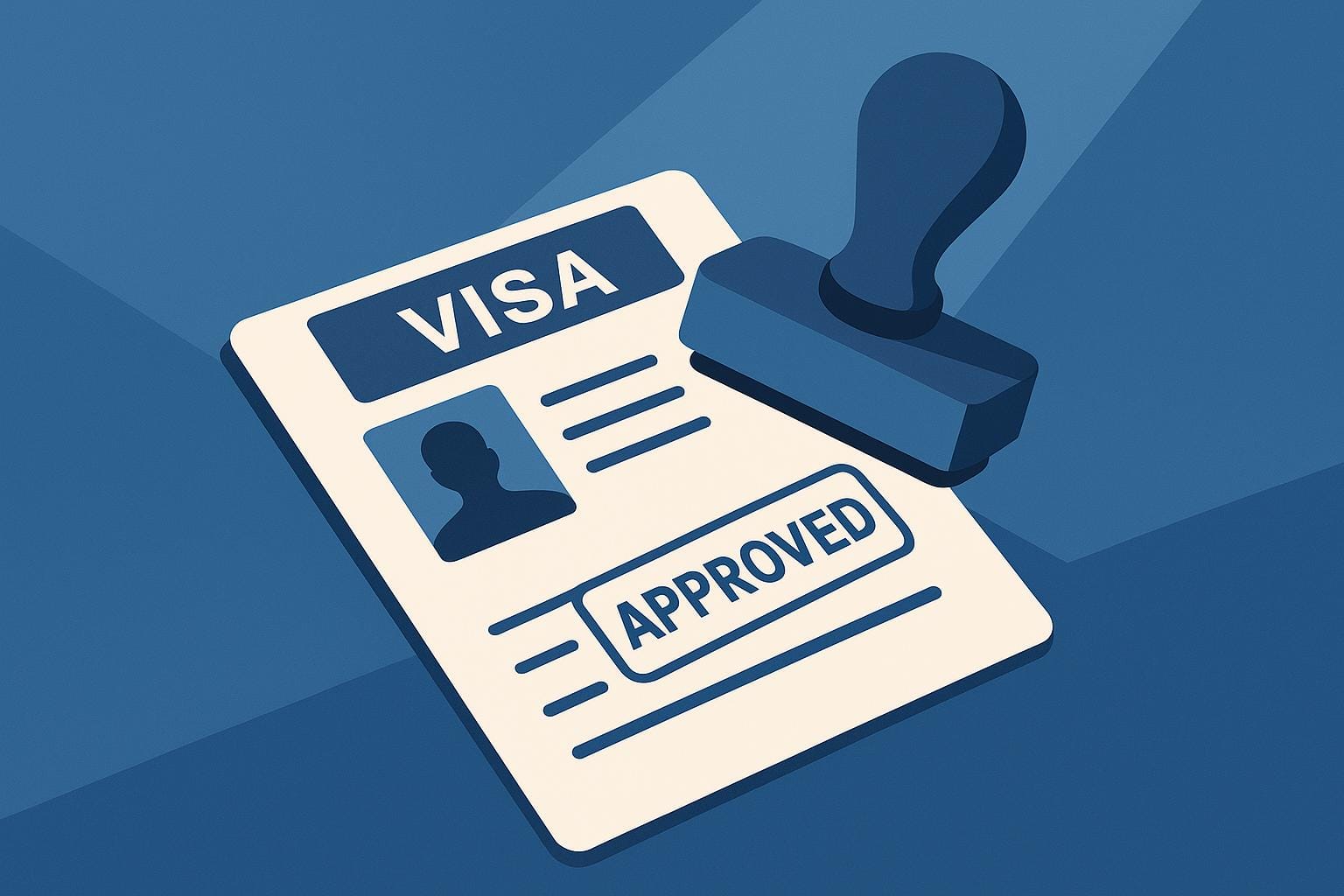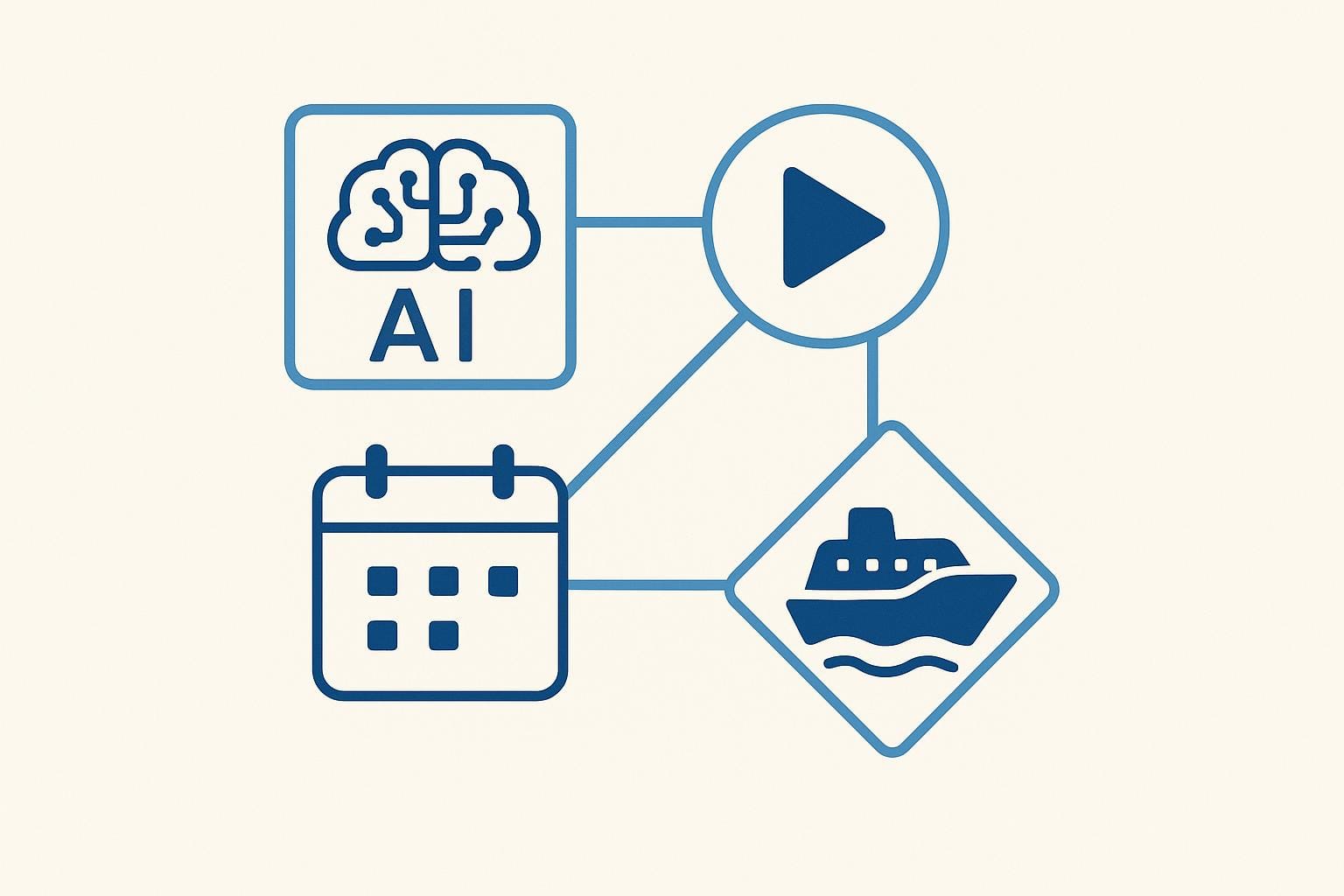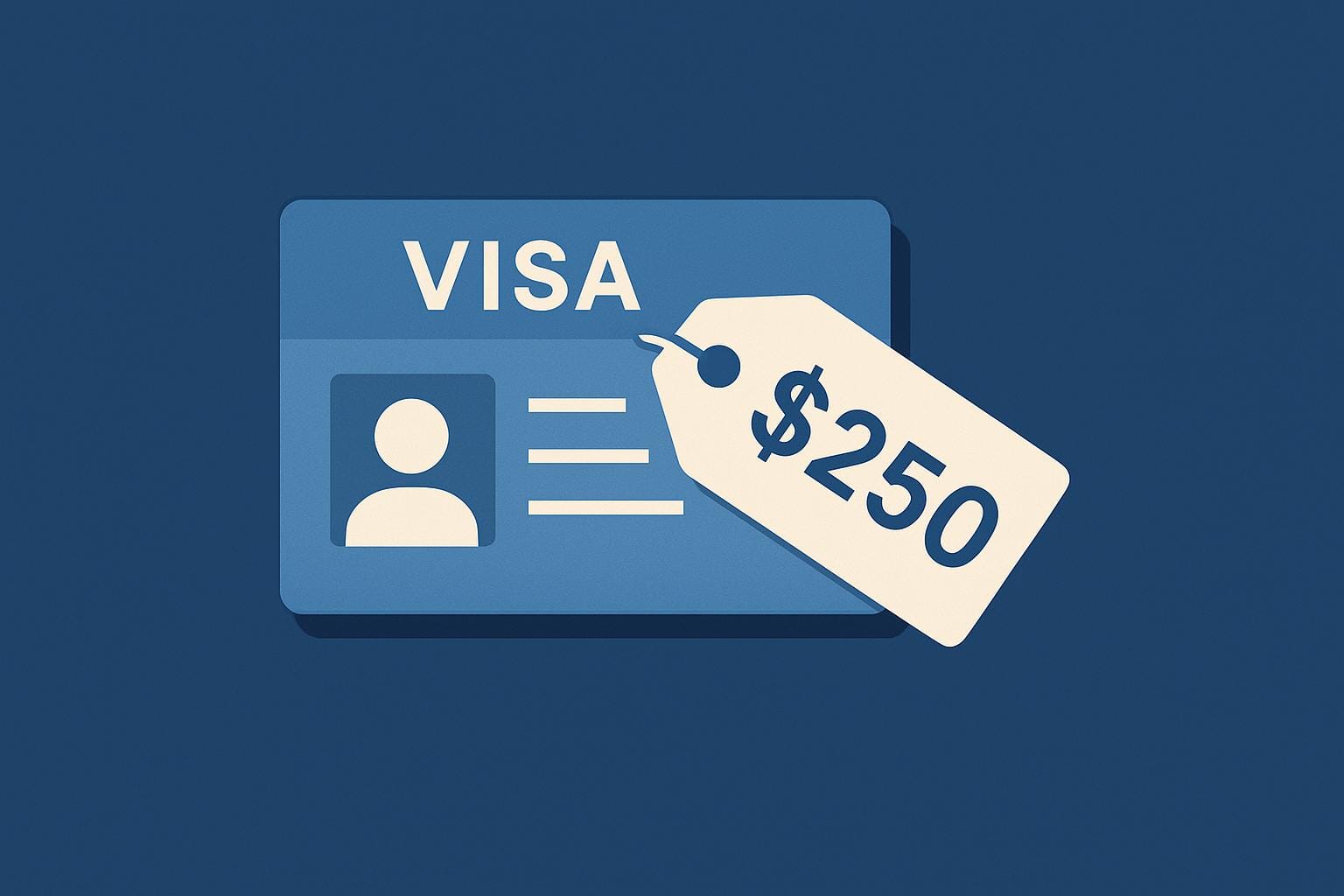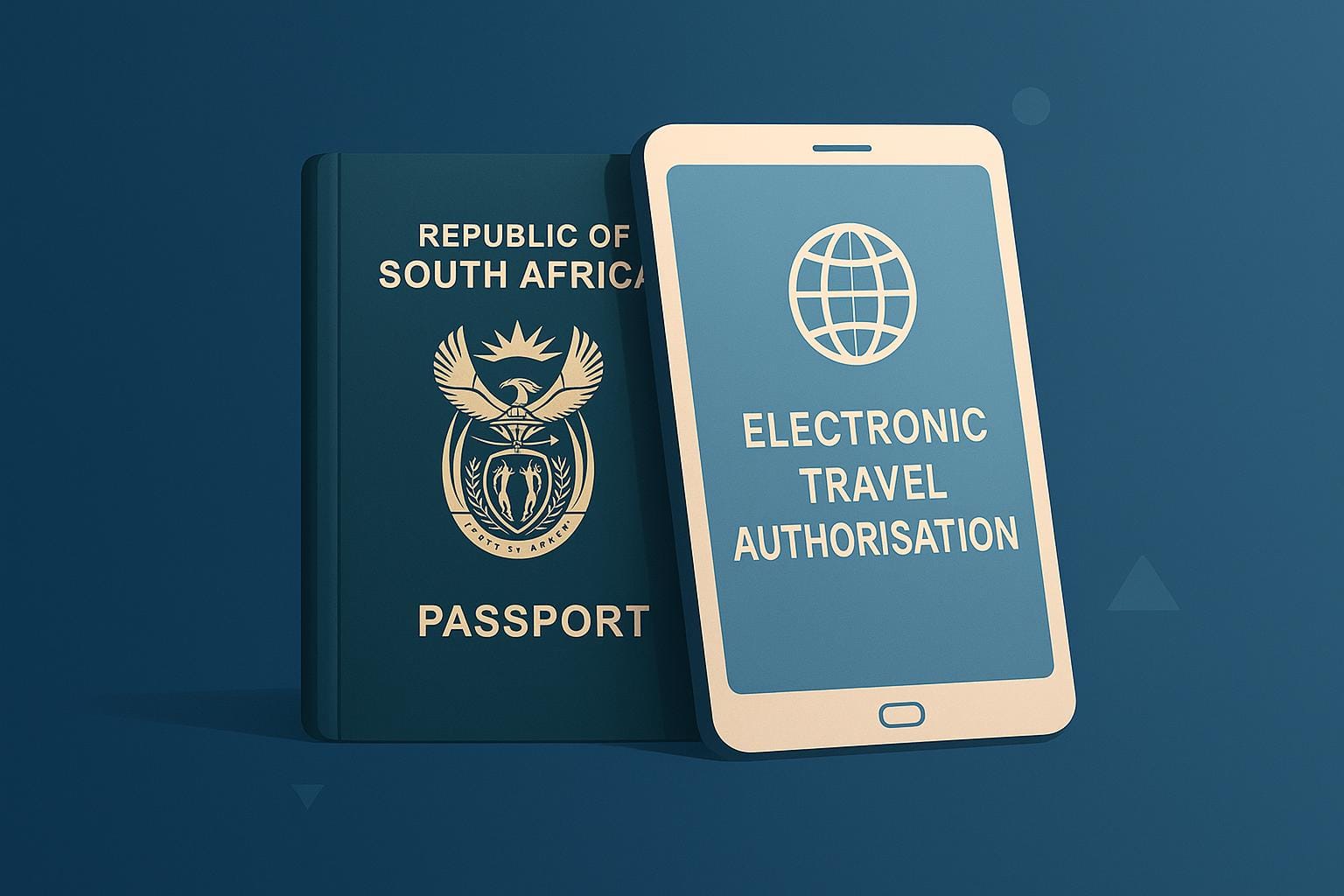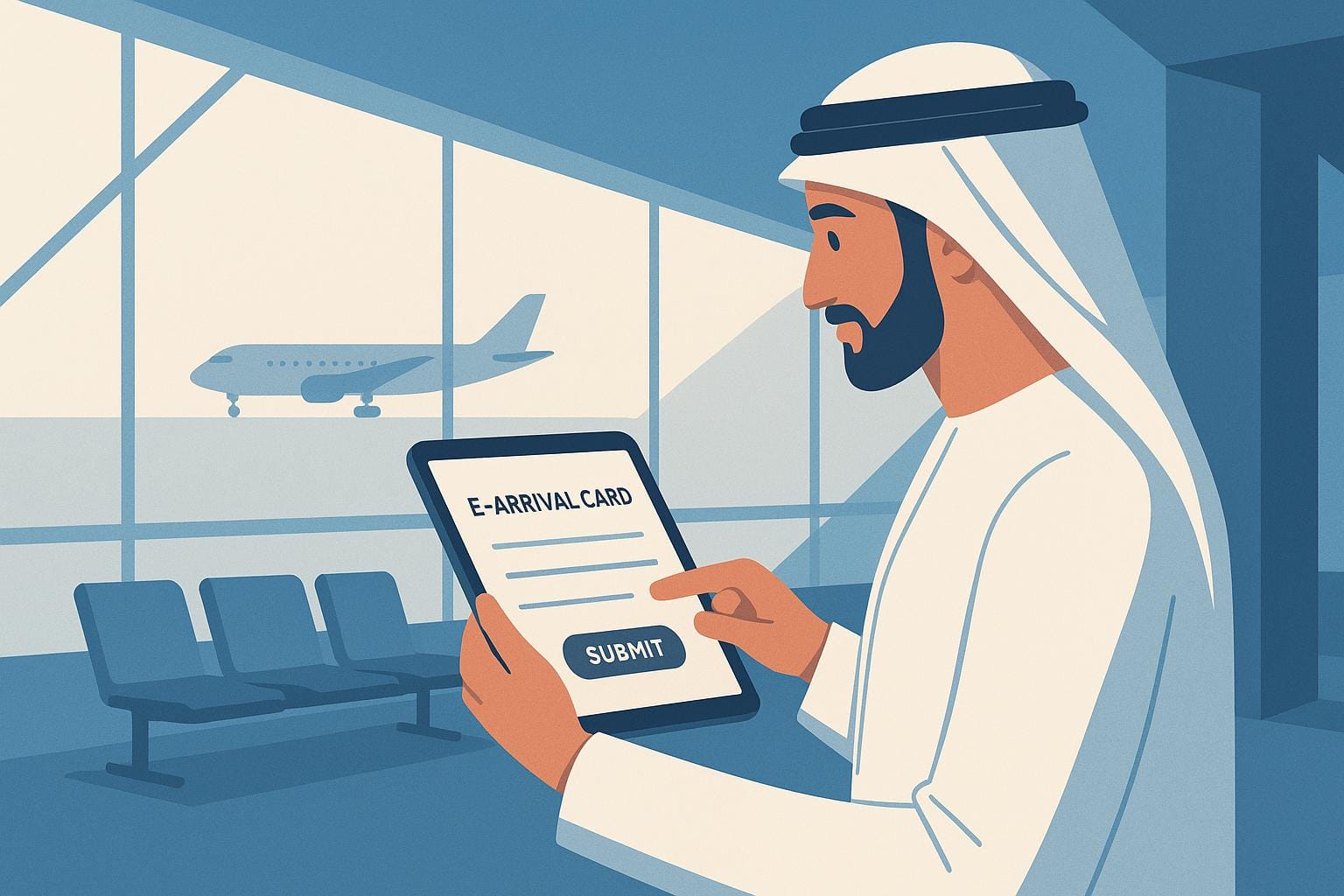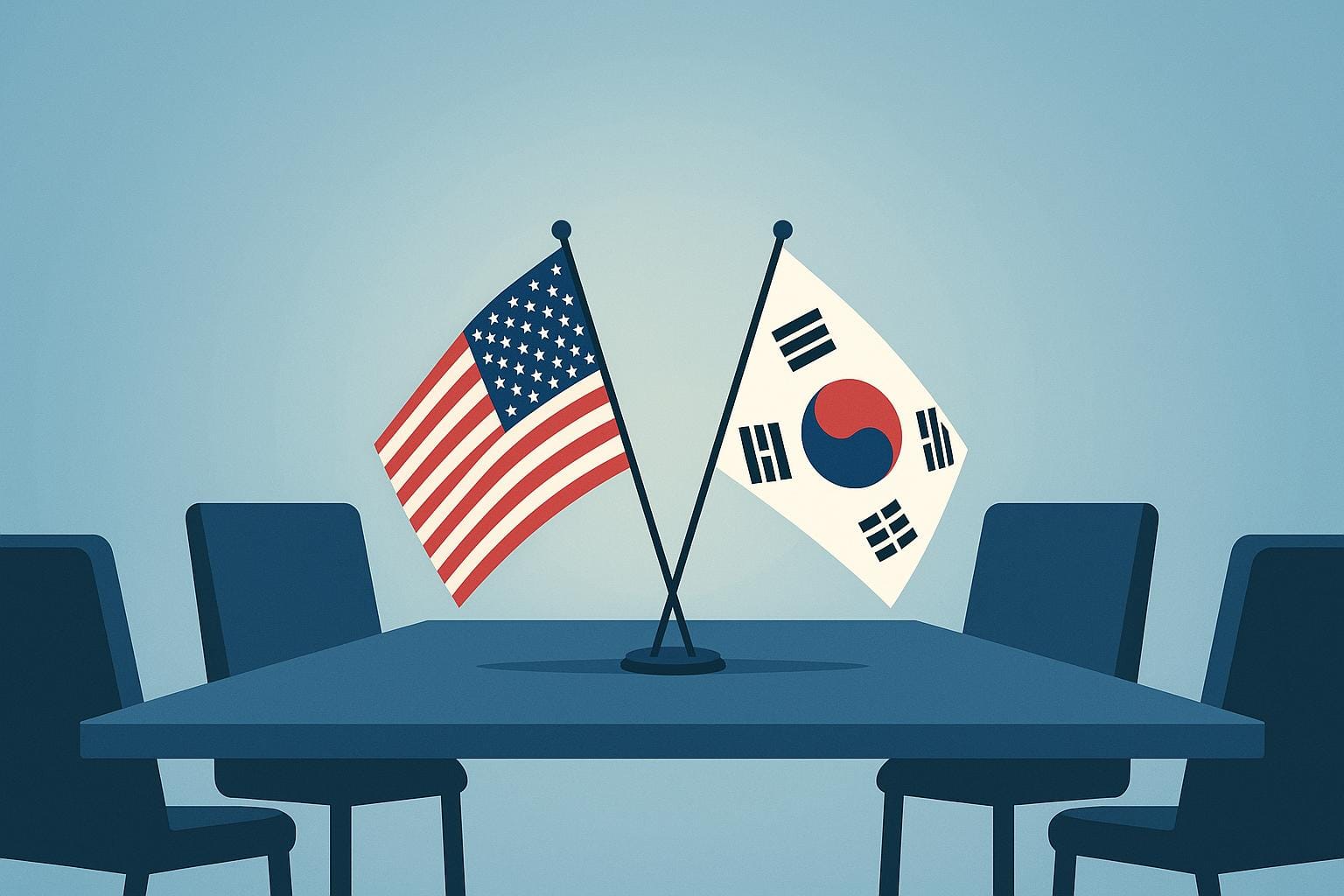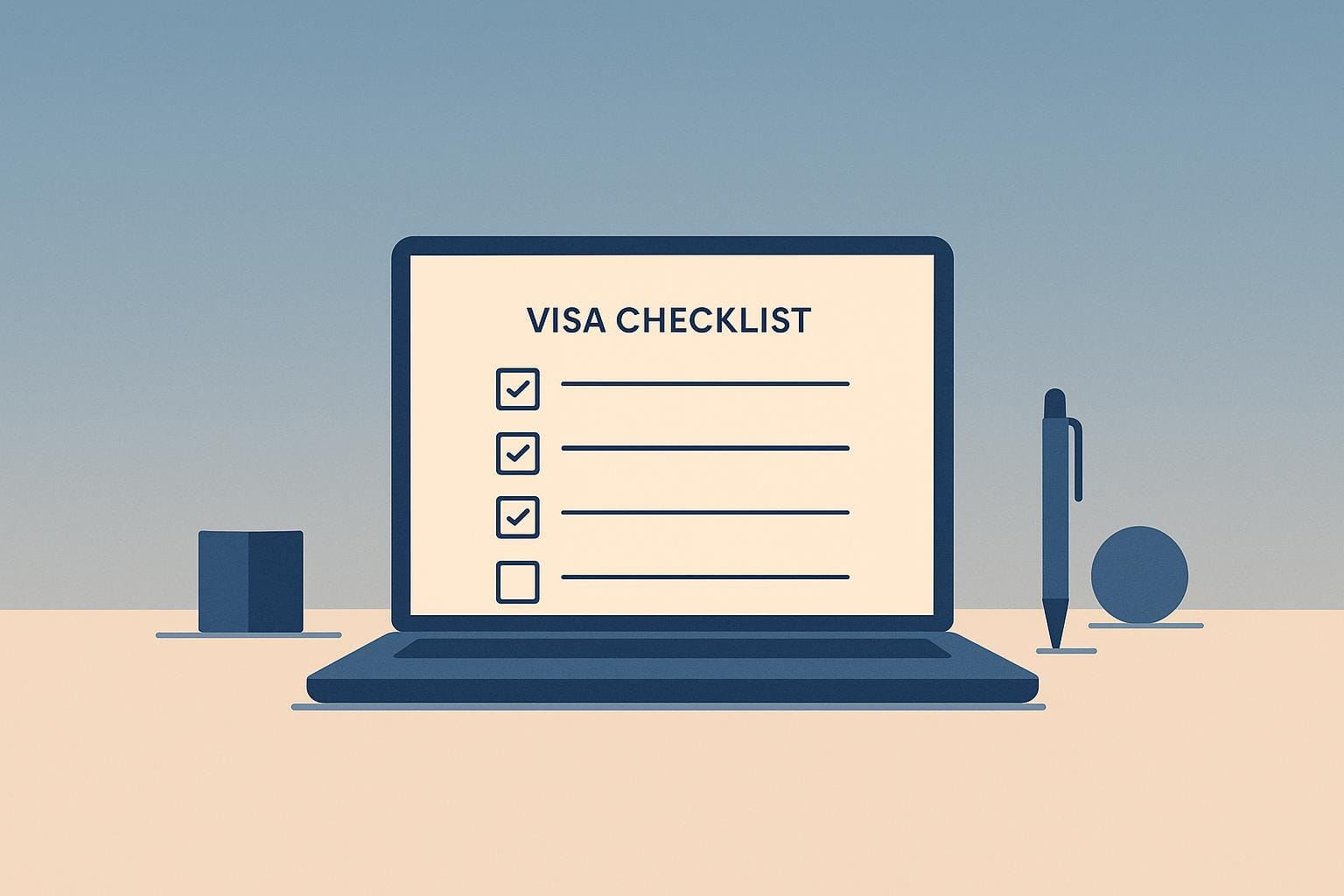Panama's Short-Term Business Visitor Programme is a streamlined way for logistics companies to manage operations in a global trade hub without the hassle of traditional work visas. This programme allows professionals to conduct activities like corporate assessments, project planning, and facility inspections in Panama's logistics sector, leveraging the country's strategic location and infrastructure.
Key Takeaways:
- Eligibility: Open to professionals sponsored by Panamanian-licensed businesses. Restricted nationalities may require additional approvals.
- Stay Limits: Valid for up to 9 months, with options for 15 days, 3 months, or 9 months. Non-renewable.
- Application Requirements: Financial proof, notarised documents, clean criminal record (for stays over 15 days), and sponsorship letters.
- Tax Benefits: Companies in free zones enjoy tax exemptions on foreign-sourced income and reduced SEM tax rates.
- Processing Time: Up to 30-60 business days depending on visa type.
This programme is a cost-effective solution for logistics firms needing quick access to Panama's growing trade hub. Automated tools like VisaDoc can simplify the visa process, ensuring compliance and reducing delays.
Programme Requirements and Application Process
Navigating the programme's requirements involves meeting eligibility criteria, gathering the right documents, and strictly following the outlined rules. Logistics companies must carefully comply to ensure successful applications for their team members. Below, you'll find details on eligibility, the application process, and the regulations governing short-term stays in Panama.
Who Can Apply for Short-Term Business Visitor Status
Foreign nationals planning to work in Panama, even briefly, must secure both a visa and a work permit. This programme is open to individuals conducting various business activities, including professionals, scientists, investigators, merchants, investors, humanitarian workers, bankers, and remote workers. For logistics companies, this typically includes roles such as project implementation, facility inspections, corporate assessments, and strategic planning.
Applicants must be sponsored by a Panamanian-licensed business. This means logistics firms need either a local presence in Panama or a partnership with a Panamanian company to support the application. The sponsoring entity assumes responsibility for ensuring the visitor adheres to the programme's regulations.
Some nationalities face heightened scrutiny. Panama requires additional approvals for applicants from countries such as Afghanistan, Algeria, Bangladesh, Iran, Nigeria, and Syria, among others. However, exemptions exist for restricted nationals holding a Schengen Visa, a valid residence in the European Union, or a US visa.
How to Apply and Required Documents
The application process involves submitting documents to both the Ministry of Labour (ML) for a work permit and the National Immigration Service (NIS) for a visa. Companies must plan well in advance to coordinate submissions between these agencies.
Applicants need to prove financial solvency, the purpose of their visit, and provide comprehensive documentation. For basic applications, the financial solvency requirement starts at USD $500.00, but business visitors often need to demonstrate funds in the five-figure range.
All documents must be notarised by a Public Notary and translated into Spanish. The standard documentation includes:
- A completed and signed visa application form
- Copies of all passport pages (minimum three months’ validity)
- Flight reservation, itinerary, or e-ticket
- Valid ID copies
- Three 2x2 photographs with a white background
- Payment via money orders
- Proof of financial solvency
- Hotel reservation or letter of invitation (if applicable)
- Any previously approved visa (if applicable)
For business visitors, additional documents are required to validate the purpose of their trip. These include:
- Evidence supporting the trip's purpose and conditions
- A certificate confirming the foreign company’s existence (for establishing branches in Panama)
- A letter from the foreign company’s legal representative
- A confirmed air reservation with continuation itinerary
- A confirmed hotel reservation, if applicable
Fees vary by visa type. For authorised visas, applicants pay $50.00 plus a $90.00 money order to the Consulate of Panama, totalling approximately £110. Remote workers and certain business categories pay $300 (around £235), which includes a $250 application fee and a $50 visa card issuance fee.
The processing timeline can be lengthy. Authorised visas may take up to 60 business days for approval, while stamped visas are typically processed within 30 business days, depending on document verification. Legal experts suggest starting the process early and working with professionals familiar with Panamanian immigration law to avoid delays.
Programme Rules and Stay Limits
The programme enforces strict duration limits. Short-stay visas are valid for a maximum of nine months and cannot be renewed. Depending on the purpose of the visit, applicants can choose visas and work permits for 15 days, three months, or nine months. The 15-day option suits brief corporate assessments, while longer durations are ideal for more in-depth logistics hub evaluations.
Panamanian labour laws mandate that foreign employees can only work once their work permit is approved. This applies to all short-term training activities, whether the individual is giving or receiving training. Applicants must also provide a clean criminal record unless applying for a visa of 15 days or less. Supporting documents must be issued within three months of the application date.
These regulations aim to create a structured and efficient process, allowing logistics companies to oversee their operations effectively while adhering to Panamanian laws.
Programme Advantages for Logistics Companies
Panama's Short-Term Business Visitor Programme offers a range of financial and operational benefits that make it particularly appealing for logistics companies. By leveraging Panama's position as a global logistics hub, combined with favourable tax policies and efficient business processes, international firms can effectively assess and optimise their Central American operations.
Tax Benefits and Free Zone Access
One of the standout features of this programme is its tax advantages. Under Panama's territorial tax system, companies are taxed only on locally sourced income, while foreign-sourced revenue remains untaxed. For logistics firms, this can translate into significant savings, especially when operating within Panama's free zones. Businesses in the Colón Free Zone or other free zones enjoy full exemptions from duties and taxes on profits generated from foreign markets .
The Multinational Corporation Headquarters (SEM) system adds another layer of benefits. SEM companies enjoy reduced tax rates, including a 5% income tax and a 2.5% remittance tax, along with exemptions from sales tax for services provided to overseas corporate groups. They are also free from licence tax and the Operation Notice tax. When offering services to entities within Panama, income tax rates are halved. Additionally, foreign employees working under Permanent Employment Visas for SEM companies benefit from exemptions on income tax for payments received from abroad, as well as social security and education taxes.
Panama's free zones, which include 16 active zones and five more in development, have attracted over US$3 billion in foreign investment . The Colón Free Zone, in particular, is the largest free trade zone in the Western Hemisphere and the second largest in the world. These fiscal incentives provide logistics firms with a solid foundation for operational efficiency, which is further supported by the programme's flexibility.
Business Flexibility and Cost Reductions
The programme simplifies customs processes and reduces administrative hurdles, enabling logistics companies to conduct a wide range of activities within free trade zones. These activities include manufacturing, assembly, logistics services, high-tech operations, scientific research, and goods processing. Such flexibility allows businesses to evaluate their operations without being bogged down by regulatory constraints.
Panama's strategic location as a gateway to both North and South America enhances supply chain efficiency. This advantage is further bolstered by the country's political and economic stability, with GDP growth rates of 10.8% in 2022 and 7.3% in 2023. Additionally, nearshoring trends - where companies move operations closer to North American markets - create new opportunities for logistics firms. Free zones are also evolving to accommodate e-commerce and remote trading operations.
The programme's flexible duration options are another plus, allowing businesses to tailor their visits to suit specific needs. Whether it's a quick assessment or a more in-depth evaluation, companies can align their strategies with operational goals while keeping costs under control.
Programme Benefits vs Limitations Analysis
The advantages and limitations of the programme are summarised below:
| Advantages | Limitations |
|---|---|
| Tax exemptions on foreign-sourced income and free zone profits | Maximum 9-month duration with no renewal option |
| Access to 16 active free zones, including the Colón Free Zone | Sponsorship requirement by a Panamanian-licensed business |
| Reduced SEM rates: 5% income tax, 2.5% remittance tax | Restricted nationality approvals for certain countries |
| Streamlined customs procedures in free trade zones | Professional licensing restrictions for certain roles |
| Gateway position accessing North and South American markets | Work permit prerequisite before commencing activities |
| Political and economic stability with strong GDP growth | Comprehensive documentation requirements in Spanish |
| Nearshoring opportunities for supply chain optimisation |
While the programme does have some limitations, such as the limited duration and documentation requirements, its overall benefits make it a strong option for logistics companies. In the first half of 2024 alone, foreign direct investment in Panama reached US$1.61 billion, marking a 23% increase from 2023. These figures underscore Panama's growing appeal as a regional logistics hub.
Compliance Management for HR and Legal Teams
Managing compliance effectively is the backbone of successful visa automation, especially for logistics companies operating in Panama. For Panama's Short-Term Business Visitor Programme, HR and legal teams must juggle meticulous documentation, employee tracking, and staying ahead of regulatory changes - while keeping operations running smoothly.
Documentation and Employee Monitoring
Keeping thorough documentation is non-negotiable for compliance. Every foreign worker must have the correct visa and work permit. To stay on top of this, HR teams should use tracking tools to monitor employee travel and work durations. Failing to comply could lead to immigration penalties and impact tax, social security, and payroll obligations.
Real-time travel data and automated reporting systems can greatly enhance tracking efforts. Additionally, sponsorship by a Panamanian-licensed business is a must. This means HR teams need to work closely with local partners to ensure all sponsor documentation is accurate and up to date. Applications also require a clean criminal record (except for stays under 15 days) and supporting documents issued within three months of submission.
Clear communication of travel policies is another critical step. Automated reminders can help employees stay informed about rules and avoid unintentional breaches that could jeopardise future applications or result in penalties. Alongside tracking employees, staying on top of regulatory changes is equally important.
Monitoring Regulation Updates
Keeping up with immigration updates is essential to avoid compliance risks. Legal teams should have a systematic approach for tracking regulatory changes that might affect business visitor programmes.
In some cases, the 'host employer' is required to fulfil reporting obligations, even when exemptions exist under double tax treaties. Building relationships with local immigration attorneys, subscribing to government updates, and engaging with industry groups can help legal teams stay informed. Regular compliance reviews can also highlight gaps before they escalate into larger issues. For businesses with fewer travellers, a detailed review of tax obligations in frequently visited countries can be particularly useful.
Audit Preparation and Documentation
Preparing for audits is all about having the right systems and documentation in place. Conducting internal audits regularly and maintaining a clear change management process can help your team stay ready for external reviews. Key documents to maintain include the Information Security Policy, Access Control Policy, Incident Response Plan, Business Continuity and Disaster Recovery Plan, and Acceptable Use Policy. Leadership reviews and making policies accessible to all employees ensure your compliance framework stays current. Training employees on compliance responsibilities and reporting procedures is equally important.
Assigning an audit coordinator can simplify the process of gathering evidence, managing documentation, and handling communication. For work permits, coordination between the Ministry of Labour (ML) and the National Immigration Service (NIS) is required. A work permit must be obtained from ML before applying for a visa at the NIS.
Regularly updating documentation to reflect current practices is crucial, as is designating a single point of contact for auditors to streamline the process. Ensure third-party vendors and partners meet the same compliance standards, particularly when handling sensitive customer data. This includes setting clear contractual obligations and monitoring their adherence to these standards effectively.
Automated Visa Management Solutions
Visa processing can be a major headache for logistics companies in Panama, especially with the high volume of corporate travel they handle. Manual processes not only slow things down but also increase the risk of compliance issues. This is where automation steps in to make a difference. VisaDoc, an AI-driven platform, offers a streamlined solution that simplifies visa management for businesses navigating Panama's Short-Term Business Visitor Programme.
Key Features of the VisaDoc Platform

VisaDoc automates a massive 90% of visa-related tasks, making it an ideal choice for companies juggling frequent business travel to Panama. The platform’s standout features include:
- AI-powered requirement checks: Automatically verifies visa applications against Panama's Short-Term Business Visitor Programme criteria. This helps catch potential issues, like missing criminal record checks or outdated documentation, before they become problems.
- Guided document uploads: Simplifies the submission process with step-by-step instructions.
- Real-time compliance tracking: Keeps teams updated on regulatory changes, reducing the risk of non-compliance.
- Seamless API integration: Works with existing HR and travel booking systems to cut down on manual data entry.
- Advanced document verification: Ensures all required paperwork, including sponsor documentation from Panamanian-licensed businesses, is complete and correctly formatted.
Why VisaDoc Works for Logistics Companies
For logistics companies, time-sensitive travel - whether for supply chain assessments, port inspections, or free zone evaluations - is a constant challenge. VisaDoc’s automation tools address these needs by flagging compliance issues early and sending real-time alerts about immigration policy changes.
The platform also offers analytics on global visa policies, helping companies refine their travel strategies. For budgeting, VisaDoc’s transparent pricing structure is a win. Businesses can choose between free and paid plans, with the Expert Review Add-on priced at £75 per destination, tailoring costs to the complexity of their travel needs.
Automation in Action: Features and Benefits
VisaDoc’s automation doesn’t just save time - it delivers measurable results. Here’s how its key features translate into business benefits, particularly for Panama-related applications:
| Automation Feature | Business Benefit | Impact on Panama Applications |
|---|---|---|
| AI-powered document verification | Reduces manual errors and enhances compliance | Ensures documents are complete and sponsor paperwork is correct |
| Real-time compliance alerts | Minimises regulatory risks | Provides instant updates on immigration policy changes |
| HR system integration | Cuts down on repetitive tasks | Automatically populates travel and visa application data |
| Guided application workflows | Speeds up processing | Offers step-by-step guidance for meeting programme requirements |
| Analytics and reporting | Supports better planning | Tracks success rates and processing times for optimisation |
Combining Automation with Expert Oversight
VisaDoc’s strength lies in blending advanced automation with human expertise. As the platform explains:
"VisaDoc's AI technology automates key visa processing functions, including: Visa application assistance for business travellers and corporate employees. Document verification to ensure compliance with global visa regulations. Automated error detection to reduce delays and rejections."
For logistics companies operating in Panama, this approach is particularly effective. It ensures that sponsor documentation from Panamanian-licensed businesses is accurate and up to date, addressing a critical compliance area. By simplifying visa management and reducing the risk of errors, VisaDoc enables businesses to focus on what they do best in Panama’s fast-moving logistics sector.
Summary: Key Points for Logistics Companies
Panama's Short-Term Business Visitor Programme presents valuable opportunities for logistics companies. However, strict compliance with its requirements is essential, as any misstep can result in penalties and harm to a company's reputation.
With over 80% of organisations reporting staff shortages, efficient visa processing has become a crucial aspect of operations like port inspections and supply chain assessments. This is where automation proves to be a game-changer. Automated visa management software helps minimise errors and ensures compliance by verifying data and aligning documentation with the programme's standards. From Q1 2020 to Q3 2024, the logistics automation and compliance software sector attracted over $72 billion - around £57 billion - through 1,544 deals. Beyond operational benefits, companies investing in digital solutions are also creating workplaces that appeal to both current staff and potential hires.
To stay ahead, companies should implement reliable tracking systems, embrace automated compliance tools, and equip their teams with digital resources. These measures can significantly reduce the risk of costly compliance issues.
FAQs
What are the key benefits for logistics companies using Panama's Short-Term Business Visitor Programme?
Panama's Short-Term Business Visitor Programme brings a range of benefits tailored for logistics companies. Among its standout features are tax incentives, which help cut down operational expenses, and state-of-the-art infrastructure, designed to enhance supply chain efficiency. On top of that, the programme offers exemptions for foreign workers, making compliance and workforce management much simpler.
Thanks to Panama's prime location and its strong connections to key global markets, logistics companies can fine-tune their operations and broaden their market reach with ease. By lowering costs and simplifying processes, this programme opens up valuable opportunities for businesses in the logistics industry.
What steps can logistics companies take to comply with Panama's visa and work permit regulations?
To meet Panama's visa and work permit requirements, logistics companies must first register with the appropriate Panamanian authorities and justify the necessity of hiring foreign workers. A key regulation to keep in mind is the 10% cap on foreign employees within the workforce, along with the option of professional visas designed for skilled roles.
To make the process smoother and minimise mistakes, companies can turn to legal technology tools that automate migration management. Additionally, consulting with legal experts can help ensure all local regulations are followed and that the required paperwork is handled efficiently.
What obstacles might logistics companies encounter when applying for Panama's Short-Term Business Visitor Programme, and how can they address them?
Logistics companies looking to benefit from Panama's Short-Term Business Visitor Programme might encounter a few hurdles. For instance, environmental challenges like the ongoing drought impacting the Panama Canal can significantly cut shipping capacity and extend transit times. Additionally, political unrest and social protests in areas such as Bocas del Toro can lead to road blockages, further disrupting supply chains.
To navigate these obstacles, businesses could explore diversifying their transport routes to reduce risks. Implementing automation tools can also simplify visa and compliance processes, saving time and effort. Staying updated on local political and environmental conditions is equally important. By proactively adjusting logistics strategies, companies can minimise delays and keep operations running smoothly.
Related Blog Posts
- Singapore Business Visitor Fast Lane: Expedited Processing for Emergency Corporate Travel
- Mexico's Corporate Training Visa vs. Business Visitor Status: Choosing the Right Option
- Chile's Tech Business Visa: 30-Day Option for Software Implementation Teams
- Philippines Special Lane for Business Convention Attendees: Fast-Track Processing Options




